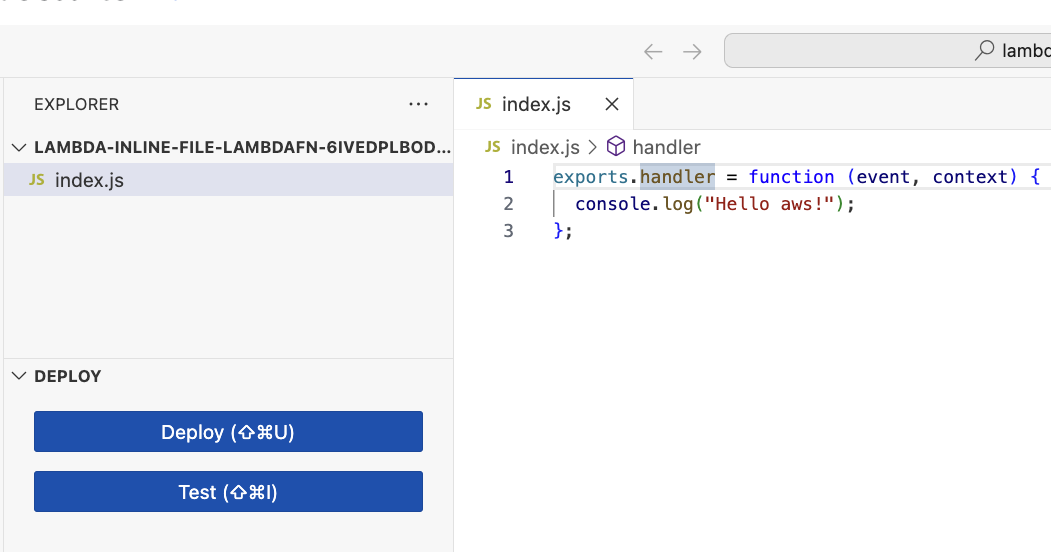Cloudform Lambda functions from file without Zip packages
Do you like the convenience of defining a lambda function inline in your cloudformation to avoid the hassle of uploading and referencing a zip file but miss syntax highlighting, being able to update and test the function in a sane way? I ran into the same problem and realised there is a nice middle ground that is less documented.
TLDR: define your function in a separate file and use a cloudformation parameter to pass it in!
Step 1: Define lambda function in a separate file
This should be the obvious first step. We want our function in a separate file, so our editor can give us nice syntax highlighting, autocomplete and we are able to unit test the function if we choose to do so.
We’ll define a minimal NodeJS lambda function in a file called index.js
1
2
3
exports.handler = function (event, context) {
console.log("Hello aws!");
};
Step 2: Read file contents into bash variable
We want to pass the contents of the file as a variable into the cloudformation template. So we need to get the contents of a file as a string variable and pass it in as a parameter override.
If using bash, you can do so like below (cat works as well, < is however a built-in function so it’s more portable).
1
lambda_src=$(< index.js)
Bash variables have a basically unlimited size capacity, so the length of the file shouldn’t pose an issue for this step.
Step 3: Pass source in variable as stack parameter
Next we’ll need to pass our file-as-string variable into the cloudformation template. This is where we do run into a stricter limit - cloudformation template parameters have a max size of 4KB
This is roughly equivalent to 150 lines of NodeJS code - so it’s definitely not the best
solution for longer functions but perfect for medium sized ones that aren’t trivial enough
to just be inline. You can use a site like Byte Size Matters
to check the byte size of the file.
We can pass in our variable defined in step 3 into parameter-overrides -
make sure to wrap it in quotes so bash doesn’t complain.
1
2
3
4
5
aws cloudformation deploy \
--stack-name lambda-inline-file \
--template-file ./cloudformation.yml \
--parameter-overrides LambdaSrc="$lambda_src" \
--capabilities=CAPABILITY_IAM
Step 4: Pass parameter into ZipFile config
Next we’ll want to create our cloudformation file and ensure we pass
the parameter defined above into the ZipFile config value.
1
2
3
4
5
6
7
8
9
10
11
12
13
14
15
16
17
18
AWSTemplateFormatVersion: '2010-09-09'
Parameters:
LambdaSrc:
Type: String
Resources:
LambdaFn:
Type: AWS::Lambda::Function
Properties:
Handler: index.handler
Role: !GetAtt LambdaExecutionRole.Arn
Code:
ZipFile: !Ref LambdaSrc
Runtime: nodejs20.x
# lambda execution role
# ...
And we’re done!
Deploy the cloudformation file and we’ll see our lambda code has updated correctly.
You can see the full repo here
Happy coding!
